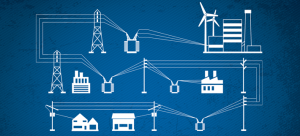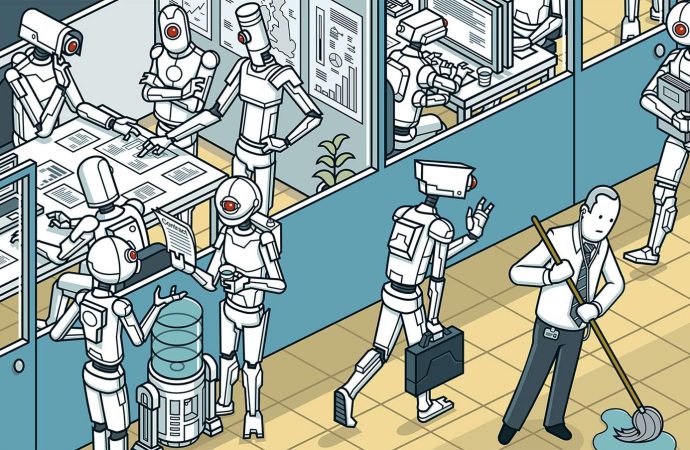The Job Market and Automation in 2025: Challenges, Opportunities, and the Future of Work The job market is undergoing a seismic shift. Automation, fueled by advancements in artificial intelligence (AI), robotics, and machine learning, is reshaping how we work. By 2025, the lines between human labor and automated systems will blur more than ever before.
The Job Market and Automation in 2025: Challenges, Opportunities, and the Future of Work
The job market is undergoing a seismic shift. Automation, fueled by advancements in artificial intelligence (AI), robotics, and machine learning, is reshaping how we work. By 2025, the lines between human labor and automated systems will blur more than ever before.
But what does this mean for job seekers, HR professionals, and tech enthusiasts? This blog will explore the challenges posed by automation, the opportunities it creates, and strategies for adapting to this brave new world of work.
The Changing Landscape of the Job Market in 2025

Image by Yandex,com
Automation is not a distant future—it’s already altering industries worldwide. By 2025, experts predict that nearly 20 million manufacturing jobs could be replaced by robots globally, according to a 2019 Oxford Economics report. But it’s not just manufacturing; sectors like transportation, retail, and even healthcare are being revolutionized by AI-powered technologies.
However, this doesn’t mean the end of work. Rather, it signals a transformation. The job market will see some roles diminished while entirely new ones emerge, requiring us to rethink skills, careers, and how businesses approach talent acquisition.
The Impact of Automation on Traditional Jobs
Automation is set to eliminate repetitive, low-skill tasks. Industries like data entry, customer service, and logistics are already feeling the impact. For example, self-checkout kiosks are replacing clerks, and AI-powered software is reducing the need for manual data processing.
Key statistics to watch:
- A 2023 World Economic Forum (WEF) study predicts 85 million jobs globally will be displaced by automation by 2025.
- However, the WEF also states 97 million new jobs will be created, often in emerging industries.
This shift doesn’t spell doom for workers—it suggests a reallocation of human talent toward creative, problem-solving tasks that machines cannot replicate. For traditional roles, adaptation will be key.
Challenges Faced by Job Seekers in the Era of Automation
For job seekers, the rise of automation presents distinct challenges, such as:
- Skill Gaps: Many workers lack the technical and analytical skills now required in a digital-first economy.
- Job Competition: Fully-automated systems often present cost-efficient alternatives to human labor, making certain positions harder to secure.
- Career Uncertainty: Roles once considered stable, such as truck driving or administrative support, face unpredictability.
Addressing these challenges requires job seekers to focus on adaptable skill sets and emerging industries. Understanding the landscape—and where humans add value—becomes essential.
Opportunities Created by Automation

Image by Yandex.com
One of automation’s greatest impacts lies in job creation. While some roles may disappear, automation generates demand for professionals in new, tech-driven industries.
Emerging Job Roles
- AI Specialists: Developing and maintaining the machines creating automation.
- Data Analysts: Transforming massive datasets into actionable insights.
- Cybersecurity Experts: Protecting digital infrastructures that expanded automation depends on.
Demands for Soft Skills
While machines excel at repetitive tasks, creativity, emotional intelligence, and critical thinking remain uniquely human strengths. Employers increasingly value communication skills, leadership abilities, and adaptability when filling roles that balance automation with personal judgment.
Supporting Industries
Industries aiding automation’s deployment—such as AI training companies and hardware manufacturing—offer significant opportunities for those open to change.
The Role of HR and Employers in Navigating Automation

Image by Yandex.com
By 2025, automation will not just disrupt individual roles but reshape corporate human resources strategies entirely. HR professionals must adapt to recruit, train, and retain teams in an automation-heavy job market.
Key Strategies for HR Professionals
- Upskilling and Reskilling: Programs to support employees’ transition into automation-friendly roles are vital.
- Data-Driven Recruitment: Using AI-powered tools (e.g., SmartRecruiters or Workday) allows streamlined hiring processes that match candidates to the most relevant positions.
- Hybrid Workforce Management: With humans and machines working side-by-side, HR teams must create smooth integration within company cultures.
Successful businesses will be those that lean into automation while fostering employee development and innovation.
Tech Enthusiasts and the Automation Boom
Automation presents a golden age for tech enthusiasts. The industry is experiencing unprecedented levels of innovation as companies race to build smarter systems.
Key areas of interest for tech enthusiasts include:
- AI Research and Development: Creating smarter algorithms and problem-solving solutions for industries.
- Autonomous Systems: Self-driving vehicles, drones, and warehouse automation require constant technological improvement.
- Ethics and AI: The intersection of technology and ethics offers fascinating challenges as society navigates privacy and bias concerns.
For developers and engineers, this blend of technical expertise and forward-thinking creativity is driving one of the most exciting times in the tech field’s history.
The Importance of Lifelong Learning in the Job Market

Image by Yandex.com
The era of “learn once, work forever” is over. Lifelong learning is no longer a choice; it’s a necessity. Automation is constantly evolving, meaning skills that are valuable today might be less relevant tomorrow.
How to Stay Relevant
- Invest in Training: Platforms like Coursera and Udemy offer affordable courses on relevant technical skills.
- Leverage Networking: Communities for professionals, such as LinkedIn Learning and Meetup, provide support and inspiration.
- Follow Industry Trends: Staying informed about emerging technologies and hiring trends keeps you ahead of industry shifts.
Those who commit to continuous growth will find themselves far better equipped to thrive in the dynamic job market of 2025.
The Future of Work
The future of work is one of dynamic collaboration between human creativity and mechanical precision. Predictions for 2025 emphasize balance—automation taking care of repetitive, error-prone tasks while humans lead with empathy, innovation, and problem-solving.
Strategies for Success:
- For Job Seekers: Identify where humans add unique value to automated processes and align your learning path accordingly.
- For Employers: Focus on fostering a hybrid human-AI workforce that leverages complementary strengths.
- For Tech Enthusiasts: Stay at the forefront of innovation, contributing directly to the tools shaping tomorrow’s workforce.
Those who approach the changing job market with preparedness, resilience, and an open mind will thrive.
Building a Resilient Workforce in 2025
Automation offers challenges, yes, but it also unlocks unprecedented opportunities to create a smarter, more sustainable workforce. By 2025, success will favor those ready to adapt to change, whether as an employee, entrepreneur, or innovator.
The best way to get started? Stay curious. Pursue learning. And above all, view automation not as a threat, but as a tool that can drive us forward toward a brighter future of work.
















